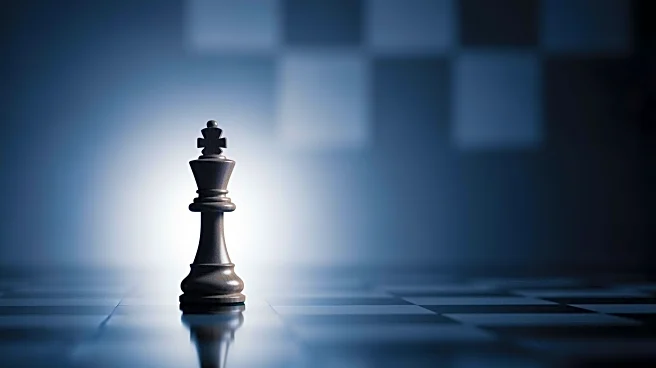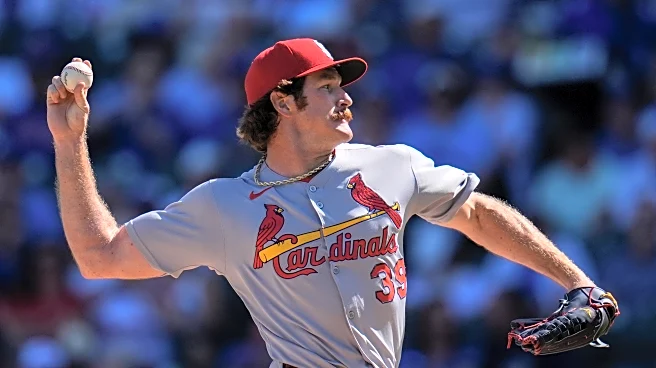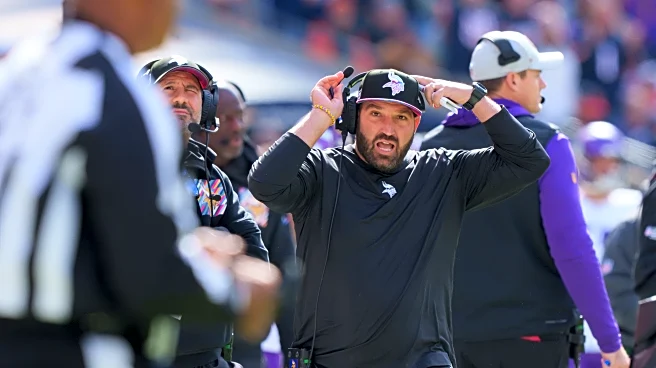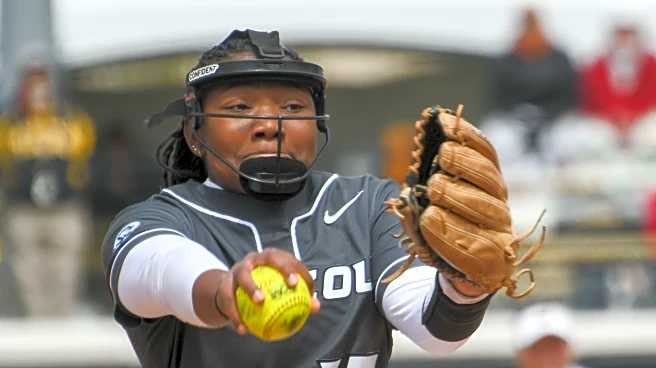What's Happening?
Daniel Naroditsky, a prominent U.S. chess grandmaster, commentator, and educator, has unexpectedly passed away at the age of 29. The news was confirmed by the Charlotte Chess Center and Chess.com, sending
shockwaves through the chess community. Naroditsky was known for his exceptional skills both over-the-board and online, having achieved his grandmaster title at 18 and consistently ranking among the top players in the world. He was also a popular figure in chess commentary and education, with a significant following on platforms like Twitch and YouTube. His sudden passing has left the chess world mourning the loss of a beloved figure.
Why It's Important?
Naroditsky's death is a significant loss to the chess community, where he was not only a top player but also a mentor and inspiration to many. His contributions to chess education and commentary have helped popularize the game and engage new audiences. As a content creator, he brought humor and insight to his teachings, making chess accessible to a broader audience. His passing leaves a void in the community, affecting players, fans, and fellow commentators who admired his talent and personality. The impact of his loss will be felt across the chess world, as he was a key figure in promoting and advancing the game.
What's Next?
The chess community is expected to continue honoring Naroditsky's legacy through tributes and memorials. Major chess events may feature moments of silence or special dedications in his memory. His influence on chess education and commentary will likely inspire others to continue his work, ensuring that his contributions to the game endure. The community will also support his family during this difficult time, respecting their privacy while celebrating Naroditsky's achievements and the joy he brought to the chess world.
Beyond the Headlines
Naroditsky's passing highlights the importance of mental health and support within competitive environments. His role as a mentor and educator underscores the need for nurturing talent and providing guidance to young players. The chess community may reflect on how to better support its members, ensuring that the pressures of competition do not overshadow the enjoyment and camaraderie that the game can offer. His legacy may inspire initiatives aimed at promoting mental well-being and community support among chess players.











